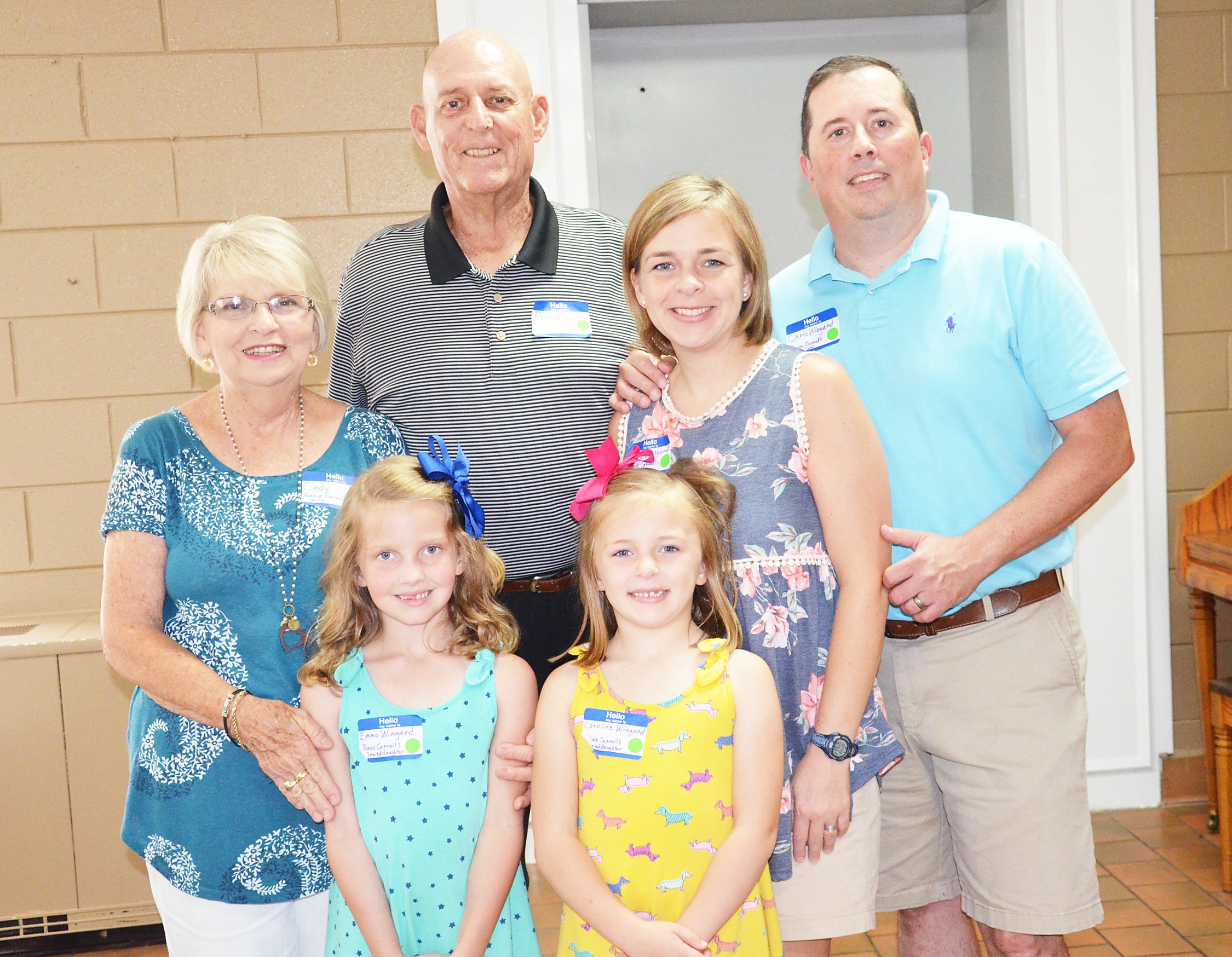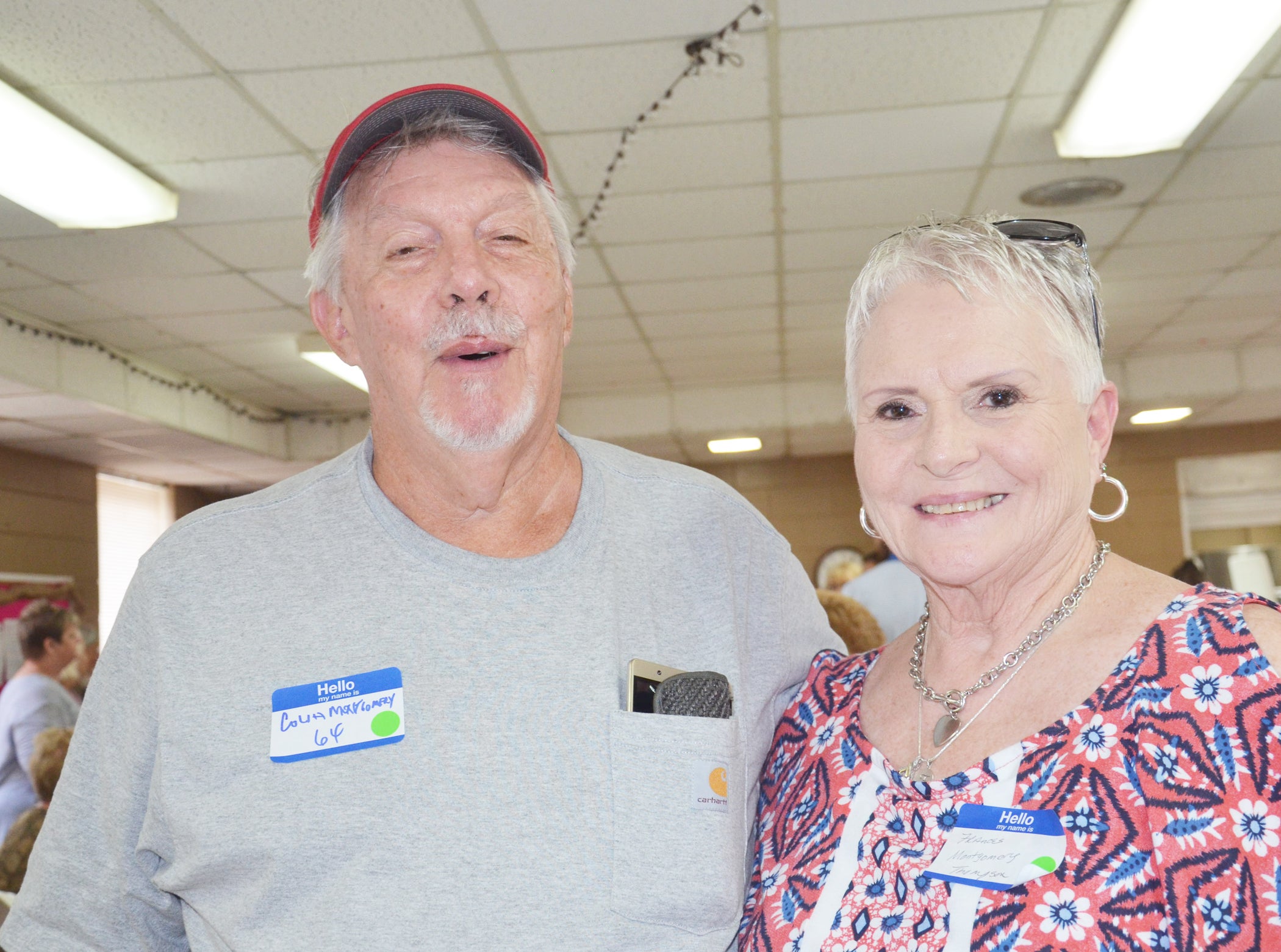Children’s Home reunion a family affair
Published 3:00 am Tuesday, June 26, 2018
Colin Montgomery’s lost his father and gained a life.
Montgomery’s story of loss and gain was much like many of the stories told at the Alabama Baptist Children’s Home Reunion held Saturday on the former grounds of the children’s home in Troy.
The stories were not so much of the tellers’ displacement from the life they knew but of the love, support and nurturing found at a place that became home.
Montgomery’s father died when he was 10 years old, his mother could not support him and his siblings. They were “welfare children” shuttled between grandparents and aunts.
“Our mother lived in the backwoods and she had no means to feed and clothe us,” Montgomery said. “She just couldn’t provide a home for us.”
But her children found a home at the Alabama Baptist Children’s Home in Troy.
They received the home comforts and the love and caring they needed, Montgomery said. “We learned about respect, about responsibility, about teamwork. And we found a place where we belonged,” he said.
The values that Montgomery learned have carried him forward in life.
“If it had not been for the children’s home, I don’t know where I would be today.”
James Davis, formerly of Troy, knows exactly where he would be had he not been a child of the Alabama Baptist Children’s Home. “Either in jail or dead.”
“I was eight years old when my mother died,” Davis said. “My daddy was an alcoholic. He left when she died and I never saw him again until I was 15 years old. He was in his casket.”
There is little doubt in Davis’ mind about the kind of life he would have led.
“I was young but I was hanging around with a rough bunch of kids,” he said. “We’d break in and steal anything we could get our hands on. I was headed in the wrong direction.”
But once at the children’s home, Davis was turned in another direction.
“I had boys to play with and somebody that cared about me — where I was and what I was doing. We all had chores to do. I worked hard on the farm but it taught me life lessons. I was at the children’s home 10 years that got me headed where I needed to go.”
A large gathering of “family members” attended the reunion and each had a story to tell. And the stories started in much the same way. Because of their family situations, the tellers were “displaced children,” living with relatives, often elderly grandparents, or being shuttled among relatives or those willing to “take them in” temporarily.
But there were other stories,
Sam Kitchens came to the children’s home as a 16-year-old along with his two younger brothers. His sister was too young to go to a foster home for a year. For a 16-year-old, the adjustment was not easy.
“Being at the children’s home was not easy to accept,” Kitchens said. “But it kept me out of trouble and taught me responsibility.”
Finding a friend who lived across from his cottage made life easier for Kitchens.
“Gary and I hung out together,” Kitchens said. “Playing ball together, fishing and hunting together, being friends helped me make it.”
David Headley’s dad worked in maintenance and he lived on campus and became friends with many of the children.
“There was no stigma attached to the kids at the children’s home,” he said. “We walked to school together, all on one side. They were part of our school and our community. They just had a different kind of family life.”
Family life was what Ronnie Carroll longed for and found at the Alabama Baptist Children’s home.
For Carroll, the children’s home was a place of security, of hope and of inspiration.
When his mother died, Carroll was 13 years old. He and his brother were taken to the children’s home but his sister was not yet in school, so she remained behind with an aunt and uncle until she was old enough to join them.
Being at the children’s home was like being adopted by a family.
“We lived in cottages with 24 others,” Carroll said. “We went to church together, like a family. I had always wanted to be part of a family, had dreamed about it. At the children’s home, I realized how important family is and hoped I would have a family of my own one day.
“I think those of us that grew up at the children’s home have a deep appreciation for family and I don’t know of anything more important than that.”
Carroll, like Montgomery, said the Alabama Baptist Children’s Home turned a bad situation into a positive one – a loss into gain – for so many children who lived at the children’s home in Troy.






